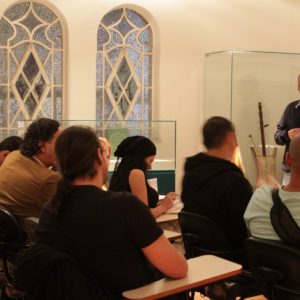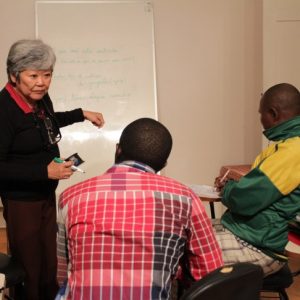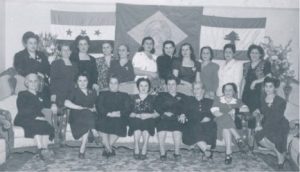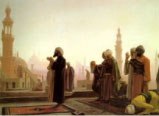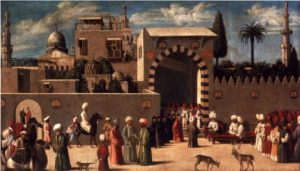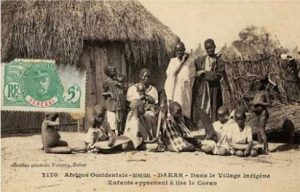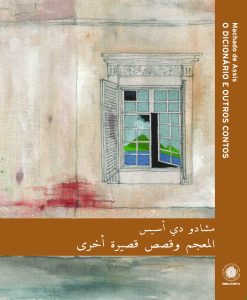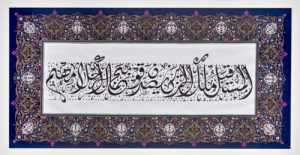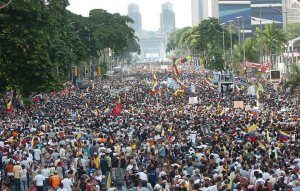BibliASPA’s research lines cover several areas in Arab, African and South American subjects. The objective is to promote critical reflection on these issues.
Join our study center.
Apply to work as a researcher
See below the main lines of research:
CORE REFUGE IN RESEARCH – Refugees in Brazil and in the world
The number of refugees in São Paulo and other cities in Brazil is increasing; In the last four years, the number of refugees has increased more than tenfold, and this is one of the topics of greatest expression in contemporary times both in the country and in the international arena. Every day we see news about the great flow of people who want better living conditions and an alternative to situations of persecution. BibliASPA seeks to promote the integration of refugees, works for its self-sufficiency and basic social assistance (such as housing, health, food, clothing, obtaining and renewing documents) and develops similar research.
Among the themes associated with this line of research are:
I) Refugees, education, Portuguese language and linguistic aspects
II) Refugees and integration into society
III) Refugees, infrastructure and urban occupation
IV) Refugees and representation in the media
V) Refugees, human rights and legal aspects
VI) Refugees and democratization of access to public services
VII) Refuge and foreign policy in Brazil
VIII) Refugees, cultural aspects and artistic production
IX) Afro-Arab tourism and refugees
X) Refugees, generalizations and discrimination
XI) Refugees and psychological aspects: from displacement to integration and insertion
XII) Refugees: health, culture and education
XIII) Refugees and cuisine
CORE AMRÍK – Arab Immigration Project in South America
The Amrík Center – Arab and Muslim Immigration Project in South America, one of the BibliASPA research groups, proposes to study the Arab presence in South America through oral, textual and iconographic sources. South America was one of the main destinations chosen by Arab communities that migrated in the context of the Ottoman Empire and later.
EDWARD SAID RESEARCH CORE – Orientalism and postcolonial studies: inventions of an Orient and non-Western spaces
The theoretical construction of the East, which appears in works of the nineteenth and early twentieth centuries, had as its initial objects Egypt, Palestine, Syria, Algeria and Morocco, among others, according to the theoretical studies of Edward Said, in particular “Orientalism,” from 1978. Next, we analyzed the representation of regions such as the Indian sub-continent, sub-Saharan Africa, China and Japan. Said anticipated a chain of cultural studies, post studies Which originate from theoretical developments produced by intellectuals based in metropolitan academic centers but from peripheral regions, especially from former British and French colonies. The intellectual Edward Said was known for his eloquence, clarity of lucidity and in depth insight. His essays were on literary criticism, music, history and migration, about Bach, Baldwin, Conrad (whose work The Heart of Darkness echoes in some of his writings), Gramsci, Lukacs, Mahfuz, Melville, Merleau-Ponty, Nietzsche, Vico, VS Naipaul, Umm Kalthum and Glenn Gould, among others. Born in Palestine, he saw much of his family become refugees and taught many years in New York. He wrote fundamental works such as “Orientalism”, “Reflections on Exile” and “Culture and Politics”.
CORE IBN BATTUTA – Travel narratives as a metaphor for the search for knowledge
The journey as a metaphor and practice makes possible the self-knowledge and the knowledge of others. Although Islam and the West are increasingly portrayed as hermetically sealed and antagonistic, it is known that their boundaries are permeable, traversed by travelers from many directions whose trajectories reveal common features in the cross-cultural production of knowledge. To imagine that these are two uniform entities whose boundaries are clearly demarcated erases the fissures within each category and the mutual historical debts between them, without citing the intense contemporary interpolation. To the extent that the explicit link between travel and the pursuit of knowledge is itself mobile, as it transcends cultural and historical boundaries to evoke resonances and anxieties through language and time, travel is a translation term, and the accounts Of these trips are also acts of translation, practices of seeing, doing, making oneself see, hear and make themselves heard. Each new meeting reveals different vectors of comparison for the traveler.
CORE AMADOU HAMPÂTÉ BÂ – Religion, ethnic identities and hybridity: narratives of origin, orality, body discipline and trans-regional experiences
The group also proposes to analyze the processes of constitution of the religious fields, emphasizing the trans-regional interactions that articulate different meanings and meanings of the historical and textual experiences of the religions. According to Subrahmanian, the connections of ideas within the spatialities of the empires allow for flexibilities of the social experiences of the sacred in transnational and diasporic contexts. The flexibility of religious practices also results in processes of control and disciplinariation of bodies which, in Foucault’s sense, translate into themselves the idea of ??a religious field as a place for the enunciation of experience. Reflections on the activation of multiple identities in diverse contexts and the hybridism characteristic of contacts and imaginaries allow us to broaden our understanding of the representations of the other and of self-image.
TÁRJAMA RESEARCH CORE – Translation and analysis of manuscripts and works in Arabic, Ottoman, Persian, Kiswahili, Tamil, Konkani, Portuguese and Spanish
The objective is to promote the reading and analysis of manuscripts and key texts translated directly from the original language, whether Arabic, Ottoman Turkish, Persian, Kiswahili, Malay-Indonesian, Tamil, Kongo, Portuguese, Spanish, English or French, Without an intermediate language between the text of departure and the one of arrival. The proposal to translate directly from the original language aims to contribute to a change in this framework and reduce the linguistic and cultural domination of the hegemonic centers.
FUNUN SEARCH CORE
CONTEMPORARY ART IN THE MIDDLE EAST: Between cultural, linguistic, religious tradition and transnational flows
This line explores the society-state interface by comparing the artistic production of Middle Eastern countries with a critical reading of the idea of ??Islamic specificity (and other religious beliefs), especially in the face of national and linguistic identities and the diversity of experiences. Traditional forms of reinterpreted or reformulated art, as well as new means of visual expression, and their insertion in transnational flows of symbolic goods will be examined.
CHE GUEVARA CORE – Comparative national experiences: Latin America and Arab countries
The process of building up Latin American nationalities since World War II has presented new perspectives for thinking about trans-regional ties, given the historical emergence of third-worldism as an intellectual and political alternative inaugurated by the Afro-Asian countries at the Conference of Bandung (1959).
In this line, relations between Latin America and the Arab countries will be focused, from the context of immigration resulting from the end of the Ottoman Empire to the study of diplomatic, military, cultural and economic relations in the context of the Cold War.
Emphasis will be placed on contemporary intellectual, artistic, religious and political relations in the context of globalization and the resignifications of the identities of diasporic Arab communities in the Americas.
Participate in the study center. Select one or more lines of research and send your CV and more data about your studies.
